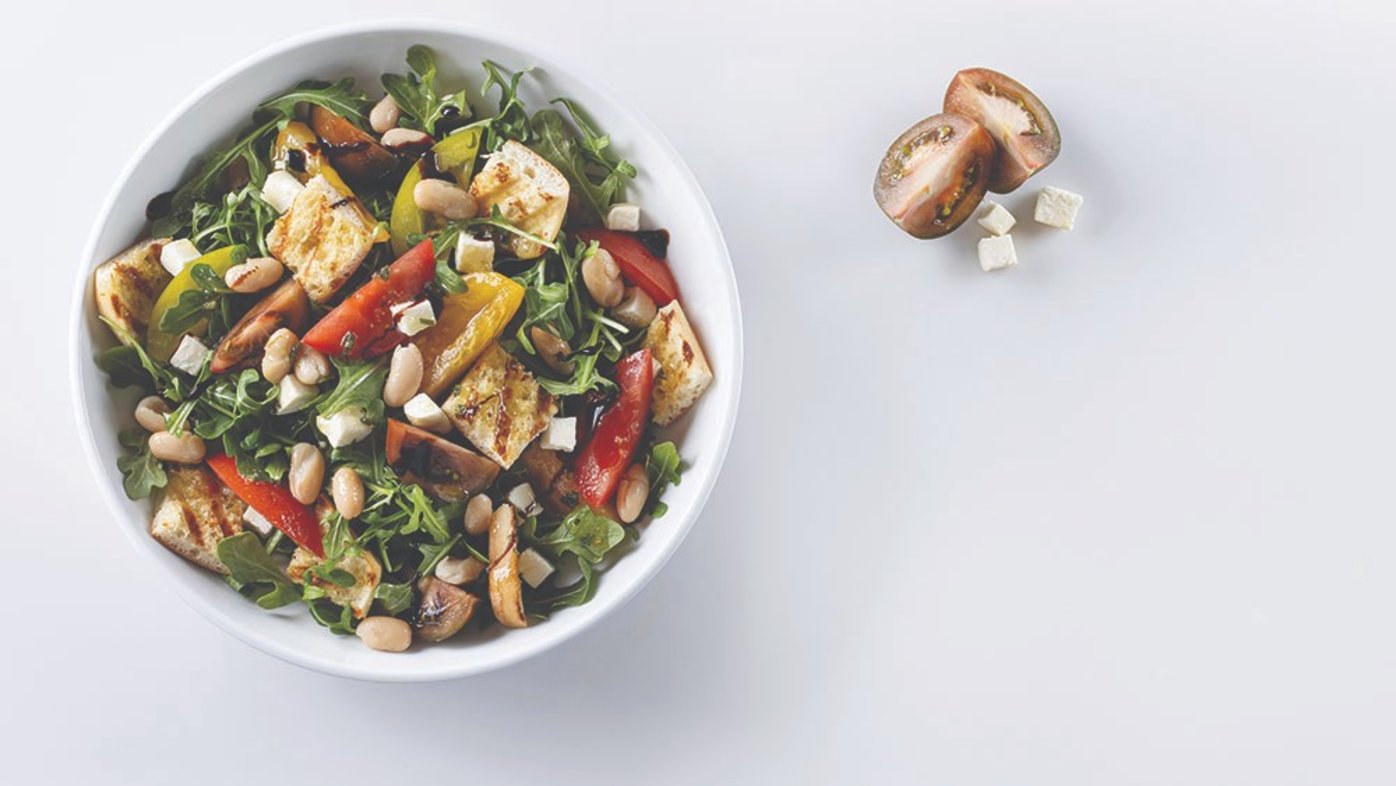
Tuscan pesto arugula caprese salad (recipe)
Heirloom tomatoes and fresh mozzarella get extra zesty with a lemon basil vinaigrette in this classic Italian salad.
You've decided to tackle an endurance race — maybe a marathon or half marathon — and each week you've reached your mileage goals. That's great! However, mileage isn't the only thing you need to prepare for; your diet can also have a major impact on your performance during a race.
According to Stewart Sanders, physical therapist with Sharp Rees-Stealy and director of Sharp's Running Clinic, "Planning what you eat before a race is just as important as the hours you've spent training. Knowing what to eat and when to eat it before a race is one of the biggest questions many new runners have."
Sanders suggests runners plan their meals early in their training program. "You want your body to be a well-tuned machine during training, and your diet should complement this effort," he says. "Eating the correct foods before a race provides the right types of fuel to support your run. It's also important to avoid stressing your stomach too much right before your race."
Many runners like to carb-load before a race. Carb-loading is the concept of eating foods that are high in carbohydrates within a few days of athletic activity. Carbohydrates are the primary source of fuel for high-intensity and endurance exercise. Eating high-carbohydrate foods is essential to optimize nutrient availability.
"You should eat foods that are high in carbohydrates within one to two days before running your race," he explains. Sanders suggests the following four tips to fuel your way to the finish line:
1. Eat a combination of carbs and lean protein.
Provide a sensible fuel combination that includes adequate carbohydrates with some lean proteins. Sanders suggests these pre-race meal ideas:
Dinner the night before the race
• Salad with a variety of fruits, vegetables and nuts (protein)
• Salmon or chicken with pasta or rice
Morning of the race
• Fruit (banana, apple or orange)
• Peanut butter
• Bagel or toast
• Oatmeal
• Honey (for sugar and flavor)
It's also a good idea to restock your fuel supply within one to two hours after your race. Eating carbs and protein will replenish your body's blood glucose and glycogen levels.
2. Timing is perhaps the most important consideration.
Give ample time for digestion (three to four hours for meals, or one to two hours for snacks).
3. Stick to the same foods.
Make sure not to experiment with new foods prior to race day. Practice using fuel that your body is familiar with during training.
4. Limit foods that are high in fat and fiber.
Make sure not to eat foods that are potential gastrointestinal (GI) stressors.
"Make sure to fine-tune your diet the closer you get to race day," says Sanders. "You don't want to introduce anything new that may be a shock to your system on race day. Practice with snacks, food supplements and hydration needs during longer training runs prior to your race."
Our weekly email brings you the latest health tips, recipes and stories.